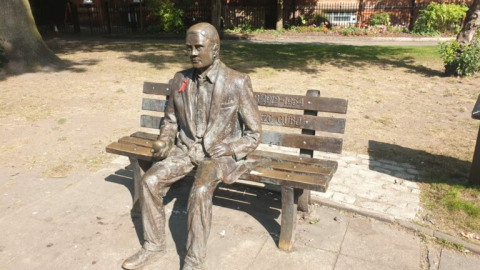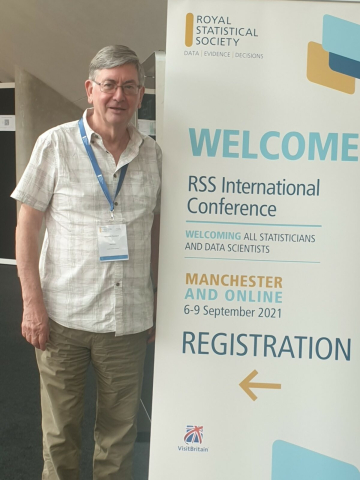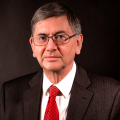What a joy it was to travel up to Manchester earlier this month and discuss statistics with live people in a conference room! Well done Royal Statistical Society for putting on a great conference with ‘in the room’ and virtual attendees. For me the delight was being back in a proper conference environment again and visiting a city I hardly know.
Manchester, of course, has a strong statistical tradition, as the home of the Manchester Statistical Society, founded in 1833, and the university where Alan Turing helped them develop the first digital computer in the late 1940s. It’s a lively city with a strong student population and good restaurants – something that virtual attendees would not have been able to appreciate.

Alan Turing Memorial, Manchester
I met up with friends I have not seen for some time, had dinner and good discussions. This is for me what a statistical society is all about – bringing good fellowship and debate. I was also interested to see how the RSS handled the balance between the ‘in the room’ sessions and those available virtually. RSS kept most of these separate, with only a few fully integrated sessions. This limited the interaction between the two audiences, but kept the costs down. Fully integrated hybrid conferences are very expensive and we need to find a way of maximising the experience for all delegates to WSC 2023 Ottawa while making the conference affordable for all.

Of course Manchester wasn’t just fun. There was also good content in the discussion sessions. I learned about their ‘Statisticians for society’ initiative. This provides free statistical advice to small charities. A young statistician spoke of a mission he had undertaken to the Cameroun. Clearly of huge benefit to the volunteer as well as the charity recipient. Other associations, eg the ASA do something similar. Something for us to think about? The key would be to find the funding. The RSS scheme is funded by the UK National Lottery.
Of course, there was much discussion about Data Science. My own interest was in official statistics and there was a good session on how the production of analytical reports is being increasingly automated, reducing error and ensuring reproducibility. We heard of a study of vehicle ‘busyness’ where data from CCTV cameras is being regularly downloaded and digitised, and had then been used as an indicator of recovery from the pandemic. The RSS has formed an ‘Alliance for Data Science’ with other scientific groups, and is working with them collaboratively on a pathway to a Chartered Data Scientist qualification. A good example of the professions working together.
A session promoted by ‘Significance’ magazine on statistical literacy and the media asked why do journalists get things so wrong. The speakers concluded this was partly down to the incentives they work to, but that statisticians also have a role in presenting their statistics in an interesting and informative way. The meeting discussed whether we need to produce a style guide for journalists.
A session organised by the history section on the role of women in statistics caused some discussion on why the government’s social survey organisation in the UK had produced a swathe of strong female leaders, who rose to high positions in the profession. The answer might be that the organisation had to compete commercially for their work, and this led to the development of strong customer relationship, negotiation and listening skills, which are an essential part of leadership. More perhaps on this in a future blog.
Meanwhile the work of ISI continues. We have now set up the new Nominations Committee for the President and team who will serve for 2025-27. It seems a long time ahead, but I know how much I valued the time I spent as President-Elect under John Bailer, so selecting the next President after Xuming He early is essential. We are also setting up a Steering Group with our Canadian friends for WSC 2023 in Ottawa. Lots of Committees! But that’s the way ISI works. I am looking forward to my first overseas trip this month, to Bern, Switzerland for the World Data Forum, and then to The Hague to meet (most of) the new Executive Committee and the Permanent Office staff – the first time I have met the PO for two years!
Steve





